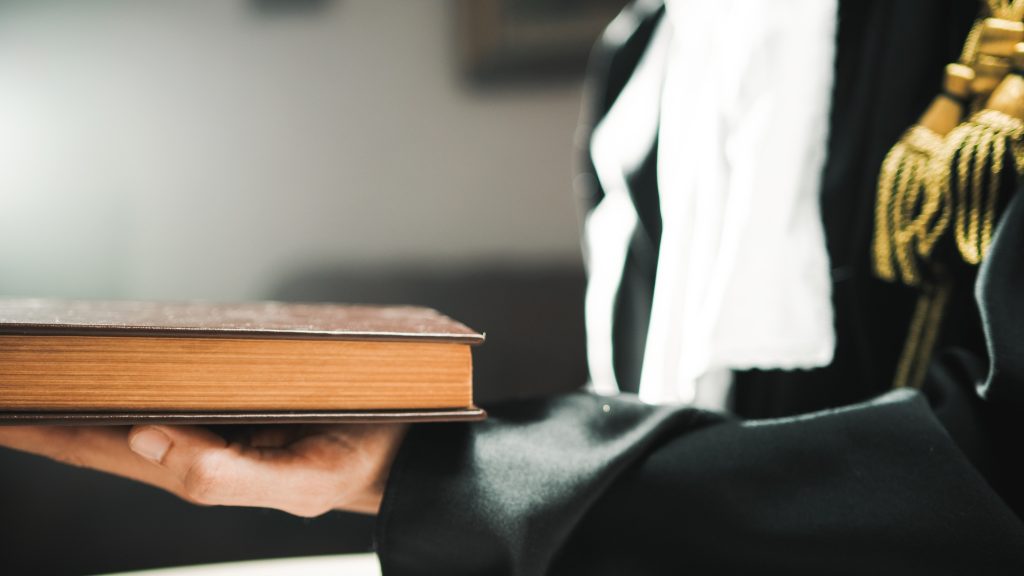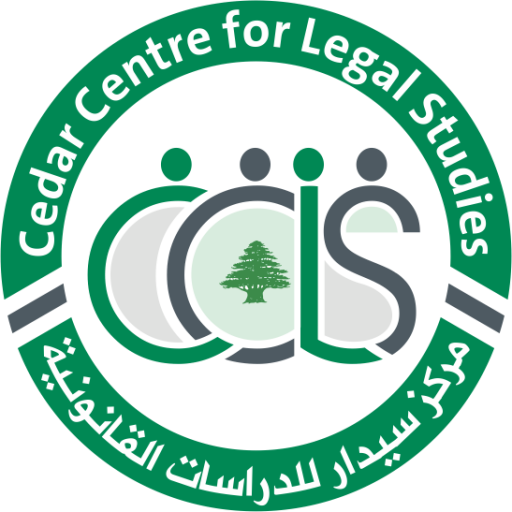Cedar Centre For Legal Studies
Case Title
Restricting Legal Speech - The Implications of the Tripoli Bar Association’s Circular on Freedom of Expression and the Independence of the Legal Profession
09/05/2025

09/05/2025
- Introduction
On 6 May 2025, the Tripoli Bar Association in Lebanon issued a circular addressed to all lawyers registered under its jurisdiction. The circular reminded lawyers of the obligation to abstain from any media appearances or public statements without prior authorization from the President of the Bar, invoking Article 39 of the Code of Ethics and Professional Conduct. It also warned lawyers against making any public criticism of the judiciary or security forces, threatening disciplinary consequences for violations.
This case study analyzes the legal implications of this circular, particularly its potential conflict with constitutional guarantees, international human rights obligations, and the principles safeguarding the independence of the legal profession.
On 8 May 2025, Cedar Centre for Legal Studies submitted an urgent appeal to the UN Special Rapporteur on the independence of judges and lawyers, as well as the UN Special Rapporteur on Freedom of Expression. The appeal urged intervention to address the potential chilling effect this circular would have on legal professionals’ ability to freely speak out on issues of human rights and the rule of law. Cedar Centre’s appeal emphasized the urgency of withdrawing the circular and called for international support in holding the Tripoli Bar Association accountable for actions that restrict the freedom of expression of legal practitioners.
- The Circular: Content and Consequences
The circular states:
“We remind colleagues of the obligation to comply with the ethics of the legal profession, in particular not to appear in the media or on social media without first obtaining the authorization of the President of the Bar, pursuant to Article 39 of the Code of Ethics and Professional Conduct. We also remind them of the duty to respect the judiciary and the security forces and to refrain from criticizing them by any means whatsoever, under penalty of disciplinary and professional liability.”
The consequences for violating this directive are serious. Any lawyer found to be in breach may be referred to the Bar Association’s Disciplinary Council. In severe cases, this could result in suspension or even withdrawal of the lawyer’s immunity and professional license, effectively barring them from practicing law.
This measure has come at a time when certain lawyers have gained public attention for their advocacy work on issues of torture and human rights violations by Lebanese security agencies. The timing and content of the circular have raised concerns about targeted attempts to silence critical voices within the legal profession.
In particular, the circular appears to directly impact the work of human rights lawyers Mohamad Sablouh and Khaled W. Al Sabbagh. Sablouh has been active in documenting and publicly speaking about cases of torture committed by Lebanese security and intelligence forces, including recent interviews in which he exposed ongoing violations. Sabbagh, a lawyer and human rights defender, hosts podcast on “Ana Hon” Media Platform where he addresses human rights topics and legal issues. Both have a prominent presence in the public sphere and their work often challenges powerful institutions, making them likely targets of the circular’s restrictive intent.
- Legal Analysis: Compatibility with Domestic Law
Under Article 13 of the Lebanese Constitution, freedom of expression is guaranteed, including the right to express opinions orally, in writing, or through any other medium, provided this is done within the limits prescribed by law. The circular appears to create a prior restraint mechanism by conditioning media appearances on pre-approval, which may exceed the restrictions permitted by Lebanese law.
Furthermore, the Lebanese Code of Ethics for Lawyers already outlines professional standards without blanket bans or vague prohibitions. The circular’s broad language and punitive consequences risk arbitrary enforcement and may not meet the threshold of legality, necessity, and proportionality required under constitutional doctrine.
- Legal Analysis: Compatibility with International Law
Lebanon is a State Party to the International Covenant on Civil and Political Rights (ICCPR), which protects freedom of expression under Article 19 and guarantees fair trial rights under Article 14. Any restrictions must be provided by law, pursue a legitimate aim, and be necessary and proportionate. Blanket restrictions or prior authorization systems for media engagement are generally not consistent with these standards.
Additionally, the United Nations Basic Principles on the Role of Lawyers establish clear protections for the independence of lawyers. Specifically:
- Principle 16: Governments shall ensure that lawyers are able to perform all of their professional functions without intimidation, hindrance, or improper interference.
- Principle 23: Lawyers shall have the right to freedom of expression, belief, association, and assembly. In particular, they shall have the right to take part in public discussion of matters concerning the law and administration of justice.
The Tripoli Bar circular runs contrary to these principles by imposing prior censorship and threatening disciplinary action for public engagement on legal or human rights issues.
- Risks to the Rule of Law
This circular sets a dangerous precedent for curtailing the independence of the legal profession. It undermines lawyers’ role as watchdogs and defenders of the rule of law and deters them from speaking out on issues of public concern, including accountability for torture and abuse.
The potential for disciplinary retaliation introduces a chilling effect, especially when combined with allegations of political pressure from state security agencies behind the issuance of the circular. It may also serve as a warning to other bar associations or civil society actors considering similar advocacy.
- Recommendations:
- Immediate withdrawal of the circular by the Tripoli Bar Association.
- Revision of internal regulations to ensure any restrictions on speech are narrowly defined, lawful, and in line with international standards.
- Protection mechanisms for lawyers engaging in legitimate human rights and public interest work.
- Engagement with international bar associations and UN mechanisms to ensure pressure and support for the Lebanese legal community.
- Monitoring of disciplinary proceedings initiated under the circular to document and challenge any abuse.
